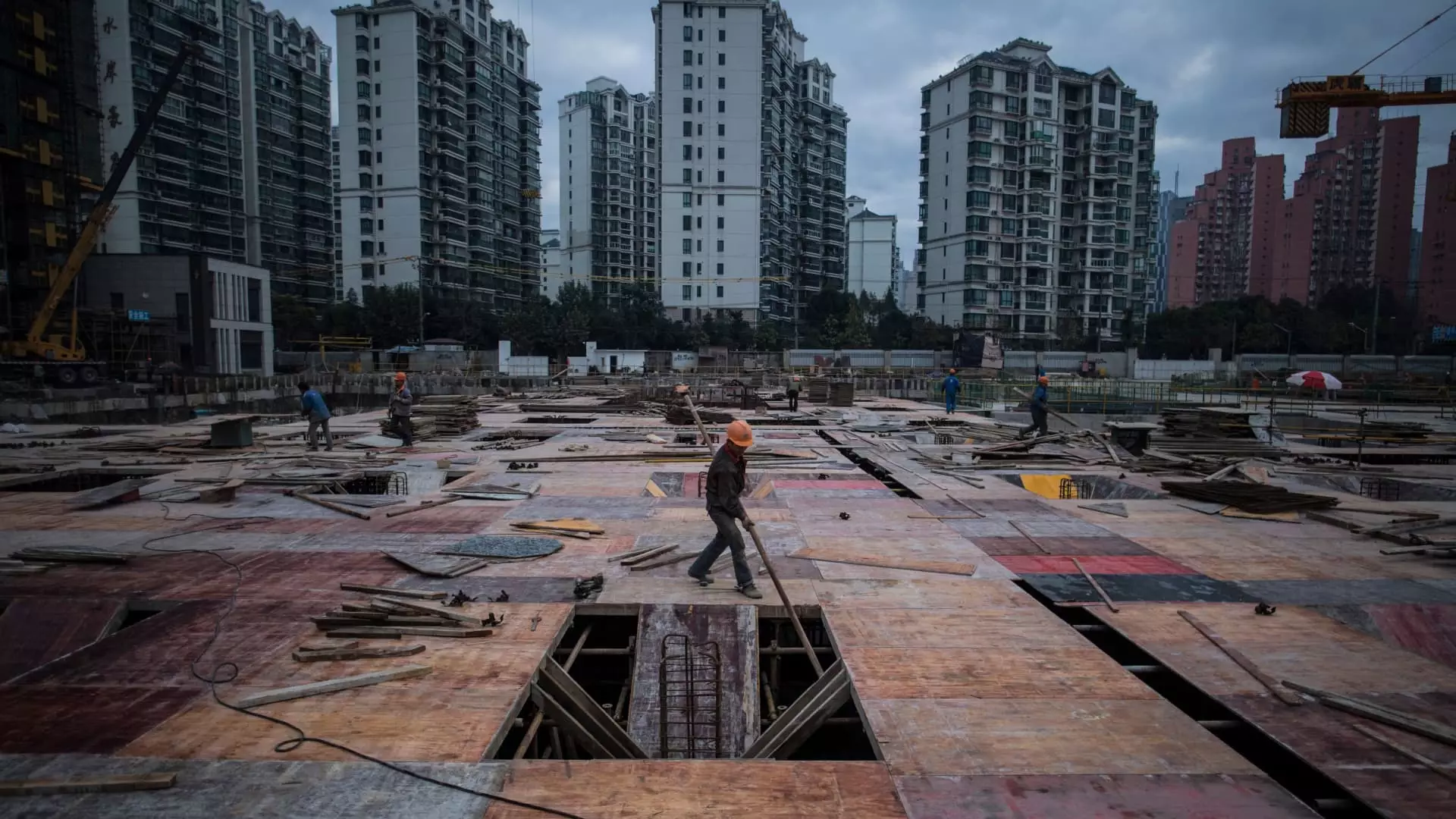The Chinese property market, once a formidable pillar of the country’s economic landscape, is undergoing a turbulent phase. Recent attempts by the government to stimulate this critical sector have yielded fleeting results, as evidenced by mixed sales performance during the traditional Golden Week holiday. This article delves into the nuances of these developments, examining the implications of current policies and why a more robust strategy may be needed to restore confidence in the market.
The week-long Golden Week holiday, known for its consumer spending potential, offered a glimpse into the current state of China’s property market. According to data from the China Index Academy, home sales experienced an uptick in specific cities like Beijing, where average daily sales surged by an impressive 81% in terms of floor area compared to the previous year’s figures. However, this isolated incident is overshadowed by a more sobering national trend: the average daily transaction area of new homes across 25 major cities fell by 27% during the same period. Key cities such as Shanghai, Guangzhou, and Shenzhen witnessed alarming declines in sales, with drops of 61%, 59%, and 57%, respectively.
This year’s Golden Week sales figures, averaging approximately 107,000 square meters, starkly contrast with previous years’ performance—177,000 square meters in 2021, 158,000 square meters in 2022, and 145,000 square meters in 2023. These statistics reveal an ongoing decline in consumer confidence and highlight the urgent need for effective policy interventions.
In light of the worrying sales data, the government has implemented several stimulus measures aimed at revitalizing homebuyer sentiment. These include lowering mortgage rates on existing loans, adjusting down-payment ratios across various property types, and increasing the purchase quotas for apartments per household. Yet, financial experts caution that these initiatives may only offer temporary relief. William Wu from Daiwa Capital Markets highlights that unless more substantial measures are introduced, the sector is unlikely to stabilize in the long run. This raises the question: can piecemeal adjustments effectively combat deeper systemic issues?
Moreover, Shen Meng of Chanson & Co. urges a longer-term view on sales figures, suggesting that the temporary spike in sales should not cloud the underlying challenges facing the market. Even with a reported 23% rebound in home sales during this year’s Golden Week compared to the same period last year, the overall track record reveals a continual decline since 2021.
The structural issues straining China’s property market are considerable. The landscape is plagued by cash-strapped property developers unable to meet financial obligations and a substantial inventory of unsold properties. The challenges extend beyond mere sales figures; they encapsulate profound concerns over housing affordability and the sustainability of ongoing developments. Zhiwei Zhang from Pinpoint Asset Management emphasizes that while some tier 1 cities experienced a brief resurgence in home sales, this is not representative of the broader market scenario.
Furthermore, prominent financial analysts like Kenneth Ho urge the Chinese government to intensify efforts in addressing “excess inventories,” yet there is a palpable sense of reluctance or insufficient action from policymakers. The current measures do not seem to tackle the root of the problem; as such, the ongoing risk of defaults among property developers continues to loom.
As the Chinese property market grapples with these challenges, stakeholders are left pondering the efficacy of current policies. The question remains whether a more comprehensive strategy can emerge to rectify the multifaceted issues at play. Historical patterns suggest that without bold reforms aimed at increasing supply, tackling debt, and fostering consumer confidence, the sector risks a prolonged stagnation.
While it is encouraging to observe a slight uptick in home sales in select cities, it must not belay the urgent call for more entrenched strategies to invigorate a market beset with challenges. The path forward must be navigated with care, prioritizing stability and long-term growth to restore the once-thriving property market to its foundational status within China’s economy.


Leave a Reply